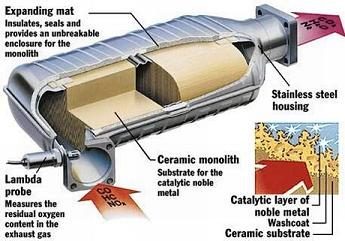 The term catalyst is used to designate that phenomenon or apparatus that serves to accelerate a specific process. There are natural catalysts, which are those that occur through a chemical or physical process, and also artificial catalysts, those created by man from the imitation of the natural process of catalysis and whose objective is to be even more powerful or efficient for certain needs.
The term catalyst is used to designate that phenomenon or apparatus that serves to accelerate a specific process. There are natural catalysts, which are those that occur through a chemical or physical process, and also artificial catalysts, those created by man from the imitation of the natural process of catalysis and whose objective is to be even more powerful or efficient for certain needs.
The idea of a catalyst comes from that of catalysis, a process that involves the acceleration of a natural event or reaction. Thus, catalysis implies the alteration (both natural and artificial) of a process and the application of speed on it to reach its resolution more quickly. The catalysis process can occur in many aspects in nature and be the natural result of the action of different entities or elements.
In this sense, the catalyst is precisely the element that triggers this reaction to obtain a higher reaction speed. In the field of chemistry, the catalyst can be neither more nor less than enzymes that are artificially applied to a chemical reaction so that it develops more quickly. This type of catalyst can be used not only in scientific research but also, and perhaps especially, in the production of certain chemical elements that require certain specific characteristics to be used.
Another of the most common catalysts that we can find, and here we must talk about an artificial mechanical catalyst, is the one that is part of the engine system of a car. The catalyst or catalytic converter is, in other words, the one that ensures that the emission of gases harmful to the environment and, obviously, to humans, is reduced. Thus, the catalytic converter is responsible for accelerating the process of conversion or dissociation of some harmful gases such as carbon monoxide or different hydrocarbons into less harmful or harmless gases such as nitrogen, carbon dioxide and water vapor.









